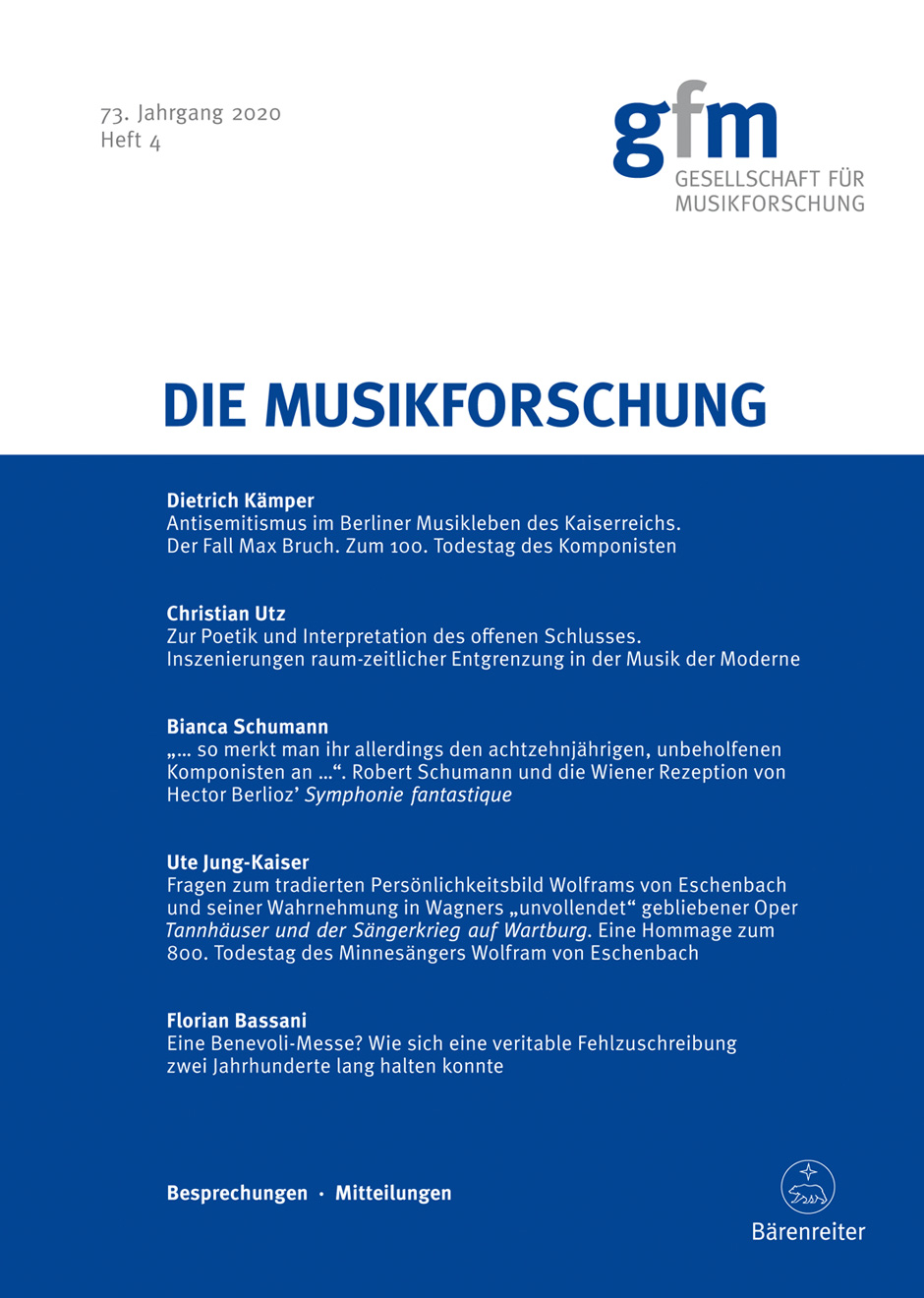Fragen zum tradierten Persönlichkeitsbild Wolframs von Eschenbach und seiner Wahrnehmung in Wagners "unvollendet" gebliebener Oper Tannhäuser und der Sängerkrieg auf Wartburg
Eine Hommage zum 800. Todestag des Minnesängers Wolfram von Eschenbach
DOI:
https://doi.org/10.52412/mf.2020.H4.5Abstract
Richard Wagner regarded his opera Tannhäuser and the Singer's Contest on the Wartburg as unfinished: Shortly before his death in 1883 he declared that "he still owed the world the Tannhäuser". His irritating confession, which lacks an explanation why he considered Tannhäuser incomplete, provides the starting point for studying Wagner's understanding of the dramatic effects, the function of the protagonists, as well as the differences between Wagner's literary sources in addition to variant traditions. Especially the iridescent and multi-layered reception of the figure of Wolfram von Eschenbach, which began already in the Middle Ages, makes it difficult to arrive at clearly defined answers. However, particularly aspects of Wolfram's self-stylizations in his literary works, opinions of his contemporaries, and compositional procedures in Wagner's writings and opera suggest that some of Wagner's intended corrections would have concerned Wolfram's person, image and inner intentions.






